The Vermont lease agreement solidifies the rental arrangement of a dwelling for a financial consideration. The provisions of the document are constructed with input from the involved parties and once agreed upon, are to be endorsed. The leasing paperwork serves as a testament to the right to utilize the property, for how long, and for what price the tenant is required to pay in exchange. The concrete record protects participating individuals, the lessor from breach of commitment and lessee for granted rights of use for the predetermined lease duration.
Lease Agreements By Type
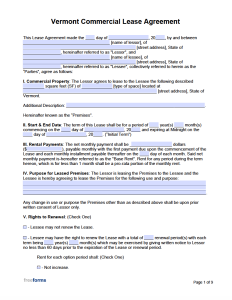 Commercial Lease Agreement – Accredits a bilateral contract allowing for utilization of real property for commercial operation.
Commercial Lease Agreement – Accredits a bilateral contract allowing for utilization of real property for commercial operation.
Download: PDF, Word (.docx)
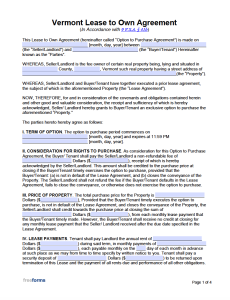 Lease to Own Agreement – A rental document providing terms to employ the use of a residence with the supplementary opportunity to buy at the end of the lease.
Lease to Own Agreement – A rental document providing terms to employ the use of a residence with the supplementary opportunity to buy at the end of the lease.
Download: PDF, Word (.docx)
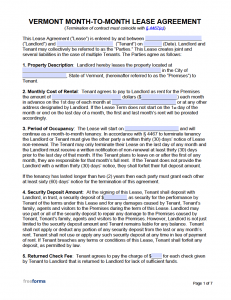 Month-to-Month Lease – A scheduled agreement to procure compensation for rights to reside in a home. This lease can be terminated prematurely by the landlord or tenant if communication is received thirty (30) days before vacating.
Month-to-Month Lease – A scheduled agreement to procure compensation for rights to reside in a home. This lease can be terminated prematurely by the landlord or tenant if communication is received thirty (30) days before vacating.
Download: PDF, Word (.docx)
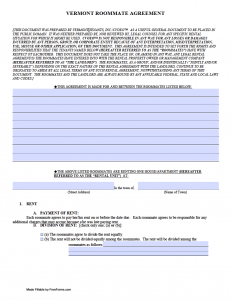 Roommate Agreement – A written understanding to pay a designated amount to live in a private room and use common areas.
Roommate Agreement – A written understanding to pay a designated amount to live in a private room and use common areas.
Download: PDF
Standard Lease Agreement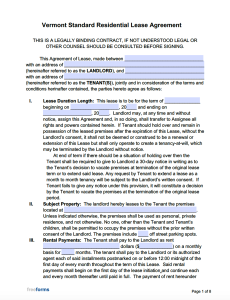 – Completes the associated paperwork necessary to document the leasing of a piece of residential property for a designated period.
– Completes the associated paperwork necessary to document the leasing of a piece of residential property for a designated period.
Download: PDF, Word (.docx)
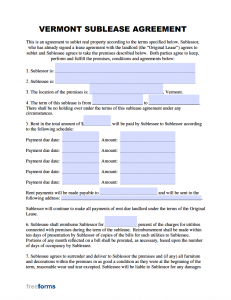 Sublease Agreement – A signifying document authorizing an individual actively renting a space to rent to another tenant for a monthly fee.
Sublease Agreement – A signifying document authorizing an individual actively renting a space to rent to another tenant for a monthly fee.
Download: PDF
Landlord-Tenant Laws
The statutory ordinances pertaining to the legalities of lessee and lessor interplay are set forth by the Vermont Statutes Annotated in the section titled Residential Rental Agreements (9 V.S.A. § 4451 – 4469a).
Required Landlord Disclosures
The state of Vermont does not mandate for any disclosure to be required within a leasing contract. Although there are no obligations to disclose on a state level, the U.S. Federal Government will necessitate that any residence constructed before 1978 include a declaration of the dangers of possible lead-paint subjection. The lead-based paint disclosure should consist of the EPA materials on the subject as well as attached disclosure statement within the written lease agreement (42 U.S. Code § 4852d).
When is Rent Late?
There is no state legislation mapping out an acceptable amount of time in which to allow rental payments to be late. The specified due date for the payment in the leasing materials should be viewed as the date of payment submission and any day after that can be presumed as “late” (§ 4455a).
Late Fees
Vermont does not put forth any regulation disallowing the charging of rental fees within the state statutes. However, per the court finding of Highgate Associates, Ltd. v. Merryfield, 597 A.2d 1280 (Vermont 1991), a precedent was set and widely accepted in the state to rebuff any such fee.
NSF Checks
The law regarding returned checks is not specified with regulatory rules of real property rental within the state. Should it be notated in a clause of the leasing contract, a charged payment may be enforceable.
Security Deposit Maximum
Security deposits for rental properties are not limited to any amount within the state. They are required to be refunded at the end of the lease term minus any damages or unpaid rent (§ 4461).
Security Deposit Return
Upon the termination of the leasing period, the tenant’s security deposit must be returned via check within fourteen (14) days. Circumstances involving defects to the property, owed rental payments, or unsettled utility balances must be itemized and subtracted from the deposit and reimbursed along with an accounting statement of the charges. Seasonal rentals do not meet the same threshold, only requiring the deposit be returned within sixty (60) days after the lease comes to term (§ 4461c).
Landlord’s Entry
The landlord is permitted to gain entry to the property for necessary maintenance needs with forty-eight (48) hours advanced notice to the tenant. The hours in which entry is allowed by state law is between the hours of 9 am and 9 pm (§ 4460).


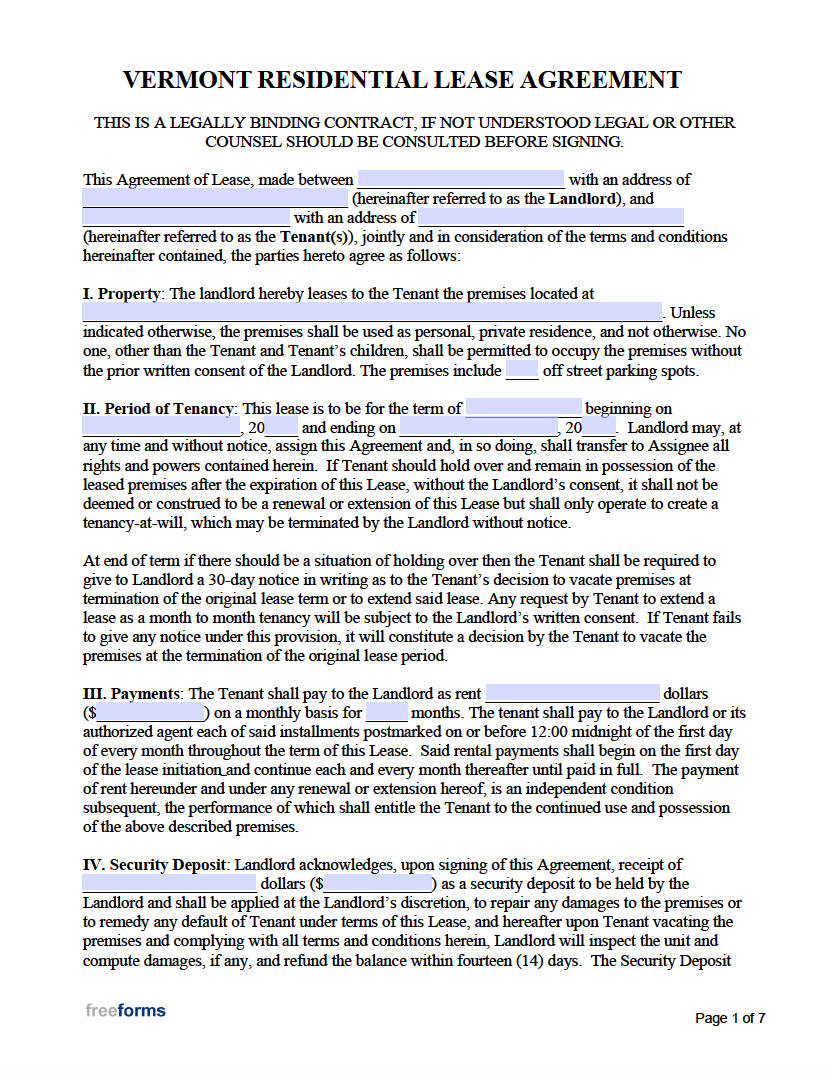
0 comments
Comments are closed.